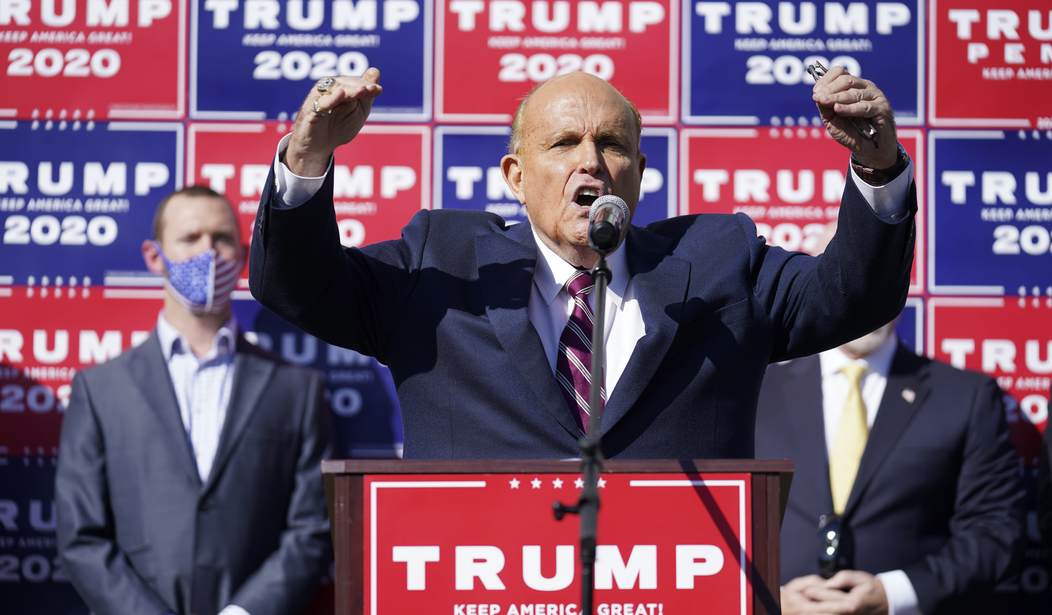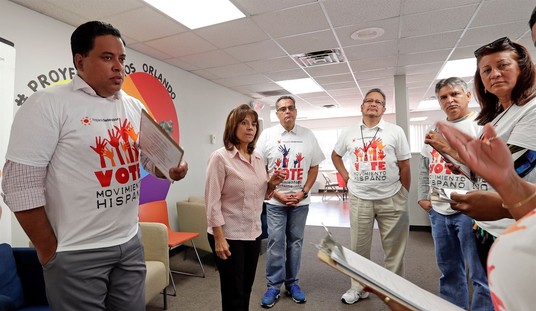On Saturday the Trump Campaign filed an Amended Complaint in the litigation brought last week in the Middle District of Pennsylvania, claiming that the Secretary of the Commonwealth and seven County Boards of Elections conspired to allow pre-canvassing of mail-in ballots for the purpose of identifying ballots which would be rejected as invalid. Democrat party operatives then contacted those voters to advise them of the need to vote a “provisional” ballot on election day.
I have previously written about this lawsuit in multiple other stories. For background, you can read about it in the following stories:
New Lawsuit in Pennsylvania Challenges Pre-Canvassing of Ballots By County Boards of Election.
Trump Campaign Asks Court to Order Pennsylvania To Provide Data On Rejected Ballots.
NAACP Motion In Pennsylvania Case Proves Claim of Unlawful Pre-Canvassing Made By Trump Campaign.
On Friday, the law firm that had filed the original complaint last week, Porter, Wright, Morris & Arthur, a firm that specializes in election law matters, was granted leave to withdraw from the case. There was much speculation on the internet that the firm chose to withdraw due to public pressure being brought against law firms which have agreed to represent the Trump campaign in its efforts to challenge the unofficial results of the vote-counting in various states.
Whether that is true or not with regard to Porter Wright is difficult to know. But one thing that is certainly true is that the attorney who represents the Trump Campaign now in the Pennsylvania case felt the ethical and legal obligation to make wholesale changes to the factual allegations of the complaint that had been signed by the attorneys from Porter Wright who filed it.
Here is a link to the “redlined” version of the original complaint, which tracks the changes that were made in the Amended Complaint which was filed in its place.
Some of the changes were necessitated by a decision from the Third Circuit Court of Appeals on Friday that rejected claims by four Pennsylvania voters in a different case. The Court held that individual voters lacked standing to assert a violation of the “Elections” and “Electors” clauses of the Constitution on behalf of the Pennsylvania Legislature. The Trump Campaign’s original complaint included claims based on the “Elections” and “Electors” clauses in a similar fashion, so in recognition of the Third Circuit’s written ruling in the other case, which is now controlling case law in the Circuit, the Amended Complaint dropped those charges.
This subject remains pending before the Supreme Court in yet another case — the one challenging the decision by the Pennsylvania Supreme Court to modify various state election laws. If the Court rules that the “Electors” and “Election” clauses were violated by the Pennsylvania Court in that case, the ruling would apply in this case as well.
But, more significantly in my view, the Amended Complaint also deleted some of the anecdotal episodes that formed the basis for some of the factual allegations of election fraud by the County Election Board as alleged in the original complaint. For example, the following language was in the original Complaint, but was removed from the Amended Complaint:
10. On Election Day, when the Trump Campaign’s poll watchers were present and allowed to observe in various polling locations throughout the Commonwealth, they observed and reported numerous instances of election workers failing to follow the statutory mandates relating to two critical requirements, among other issues: (1) a voter’s right to spoil their mail-in ballot at their polling place on election day and to then vote in-person, and (2) the ability for voters to vote provisionally on election day when a mail-in ballot has already been received for them, but when they did not cast those mail-in ballots.
11. Additionally, Plaintiffs have learned that certain County Election Boards were mailing unsolicited mail-in ballots to voters despite the fact that they had not applied for a mail-in ballot for the General Election, thus resulting in voters who received two ballots. The offending counties also failed to undertake any effort to ensure destruction of the duplicate ballots. The right to vote includes not just the right to cast a ballot, but also the right to have it fairly counted if it is legally cast. The right to vote is infringed if a vote is cancelled or diluted by a fraudulent or illegal vote, including without limitation when a single person votes multiple times. The Supreme Court of the United States has made this clear in case after case. See, e.g., Gray v. Sanders, 372 U.S. 368, 380 (1963) (every vote must be “protected from the diluting effect of illegal ballots.”); Crawford v. Marion Cnty. Election Bd., 553 U.S. 181, 196 (2008) (plurality op. of Stevens, J.) (“There is no question about the legitimacy or importance of the State’s interest in counting only the votes of eligible voters.”); accord Reynolds v. Sims, 377 U.S. 533, 554-55 & n.29 (1964). The disparate treatment of Pennsylvania voters, in subjecting one class of voters to greater burdens
or scrutiny than another, violates Equal Protection guarantees because “the right of suffrage can be denied by a debasement or dilution of the weight of a citizen’s vote just as effectively as by wholly prohibiting the free exercise of the franchise.” Reynolds, 377 U.S. at 555.
14. Through the arbitrary and illegal actions of the Secretary, Pennsylvania created a two-track system of voting resulting in voters being treated differently depending on how they chose to exercise their franchise. The first, marked by voters appearing personally at the polls complied with transparency and verifiability requirements of Pennsylvania Election Code. The second, marked by a mass of paper
ballots received through the mail, was cloaked in darkness and complied with none of those transparency and verifiability requirements. This two-track election system not only violates Plaintiffs’ rights guaranteed by the United States Constitution, but also violates the structure of the Constitution that elections in the States must be carried out as directed by their respective legislatures.voting system for the 2020 General Election, devaluing certain votes.
150. Defendants have also violated the Equal Protection Clause because as a result of their desire to ensure opacity, watchers in Allegheny and Philadelphia County do not have the same right as watchers in other Pennsylvania Counties to be present as a matter of law when envelopes containing official absentee and mail-in ballots are reviewed and opened and when such ballots are counted and recorded.
Also, this means voters are at an unequal risk of having their legal votes diluted by ballots that otherwise should be disqualified. There is no legitimate state interest justifying this disparity.
There are still other passages which were removed in the Amended Complaint, and it is hard to know why without an explanation from counsel. One possibility — which would have been my preference if the task had fallen to me — would have been to simply strip out unnecessary factual allegations that served no purpose other than making the complaint double as a press release.
Still other factual allegations may have been removed because they only applied to the claims which had to be dropped due to the new Third Circuit decision.
But another possibility — which might be part of the reason why Porter Wright withdrew from the case — is that the original attorneys may have taken some “liberalities” with the alleged facts as were being conveyed to them in those first few days following the election in order to draft the original complaint. That document was filed only 6 days after election day, and only a couple of days after all the “mail-in” ballots were finally counted according to the seven counties who were named as Defendants.
Making changes in the manner in which they have been made can reflect negatively on the attorneys who were responsible for the original complaint — especially in the eyes of the Court. Changes of this nature can raise questions bout the diligence of the preparation that went into the first complaint before it was filed. I’m certain that the Court will make inquires of Plaintiff’s counsel at the hearing tomorrow on the motions to dismiss filed by the various defendants about the changes that have been made, and ask for some explanation about what transpired on the Plaintiffs’ side.














Join the conversation as a VIP Member